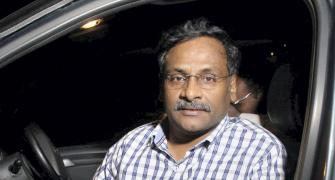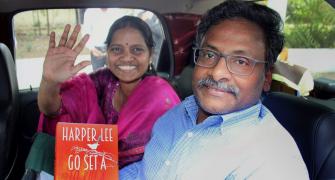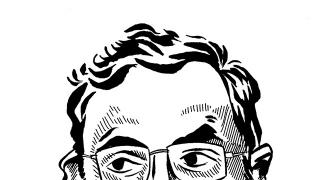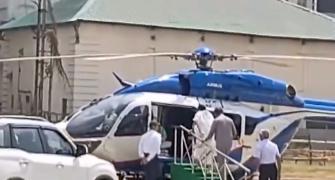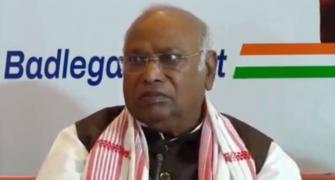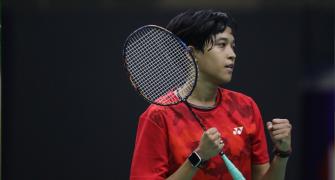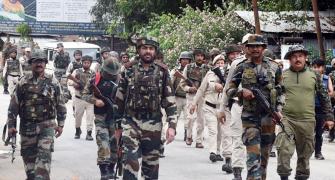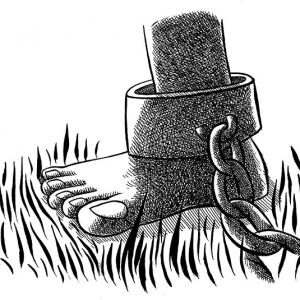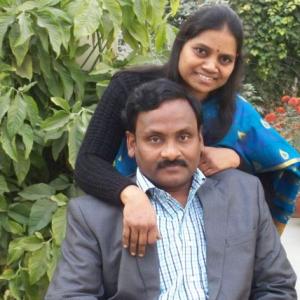Despite being 90% handicapped, suffering from multiple ailments and dependent on a wheelchair, the former Delhi University professor has not been able to step out of the anda cell of the Nagpur Jail at all since his conviction.
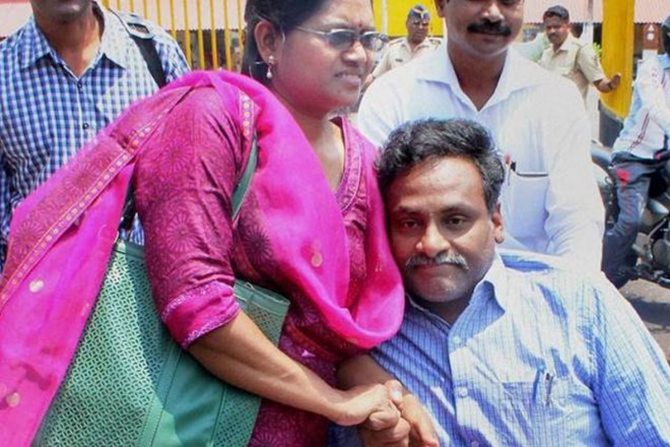
"I expected this. After all we knew there was no evidence, no crime committed by him," said an overjoyed Vasantha Kumari, wife of Professor G N Saibaba, who was acquitted today by the Nagpur bench of the Bombay high court on Tuesday, March 5, 2024.
Yet, her joy was tempered by caution. "I don't know what they will do now," she said, "we have seen people being re-arrested as soon as they step out."
Exactly the same sentiments were expressed by Shikha, daughter of Prashant Rahi, the former journalist who is also an accused. "I want to first see my father step out of that prison," said the young film-maker. "Only then will I breathe a true sigh of relief."
For all the six accused Professor Saibaba, Rahi, Hem Mishra, Mahesh Tirkey, Vijay Tirkey, Narayan Sanglikar and Pandu Narote (who passed away in August 2022), sentenced under UAPA in 2017 to life imprisonment on the charge of being Maoists, the journey to prove themselves innocent has been long and difficult. The appeal against their conviction has seen innumerable adjournments; the two Covid lockdown years only made the wait worse.
For Professor Saibaba, the imprisonment has been specially cruel.
Despite being 90% handicapped, suffering from multiple ailments and dependent on a wheelchair, the former Delhi University professor has not been able to step out of the anda cell of the Nagpur Jail at all since his conviction. Inside the cell, he was deprived of the assistance and medical aid prescribed by doctors; and the court.
All his pleas for bail, and parole when his mother was ill and later died, were turned down, citing the seriousness of the charges against him.
Rahi was acquitted in 2022 of an earlier case filed against him in 2007. But because he was serving a life sentence in this case, he could not be released. He too was confined to solitary confinement in the anda cell.
"Justice delayed, but not denied," said Shikha sadly. "Seven years of my father's life lost. The State is answerable."
All the accused came close to tasting freedom in October 2022, but that chance was snatched away from them before they could do so.
The Nagpur bench had discharged them because the prosecuting agency had failed to get the sanction to prosecute needed under UAPA. However, in a special hearing granted to the State of Maharashtra, the Supreme Court struck that down and ordered that the court hear the case on merits.
Even after that, this judgment has been a long time coming. Arguments were concluded in September 2023.
A team of lawyers represented the accused: Advocates Pradeep Mandhyan and Dharmadhikari from Mumbai, and Advocate Trideep Pais from Delhi.
"Credit for today goes to all the advocates," said a grateful Shikha. "They have worked relentlessly and pro bono."
Advocate Mandhyan thanked his Nagpur team of lawyers, Barun Kumar, Akash Sorte, Harshad Lingayat and Nihal Singh, for helping him analyse the facts of the case. "The entire case was false, forged and fabricated," said Advocate Pradeep Mandhyan. "There was not an iota of evidence. The arrest was wrong, the seizures fabricated. We demonstrated that."
He also thanked the Bench of Justices Vinay Joshi and Valmiki S A Menezes for giving him a "fantastic hearing. They were very kind and generous throughout the hearing." Sometimes judges keep interjecting in order to browbeat lawyers, added Advocate Mandhyan but in this case, "the questions asked by the judges were helpful."
Soon after his conviction in 2017, Professor Saibaba wrote this poem. Finally he will be able to see the blades of grass he so loves.
I REFUSED TO DIE
When I refused to die
my chains were loosened
I came out
Into the vast meadows
Smiling at the leaves of grass
My smile caused intolerance in them
I was shackled again
Again, when I refused to die
tired of my life
my captors released me
I walked out
into the lush green valleys under the rising sun
smiling at the tossing blades of grass
Infuriated by my undying smile
They captured me again
I still stubbornly refuse to die
The sad thing is that
They don't know how to make me die
Because I love so much
The sounds of growing grass
November 2017. (Remembering October 1917)

